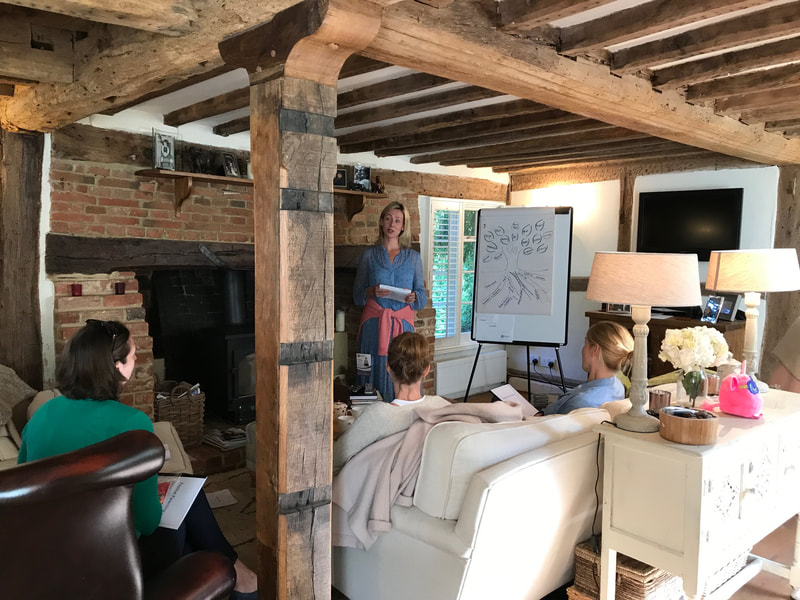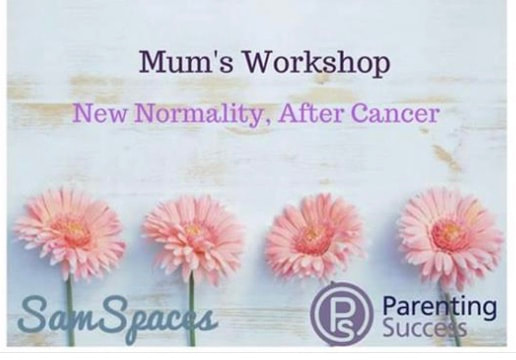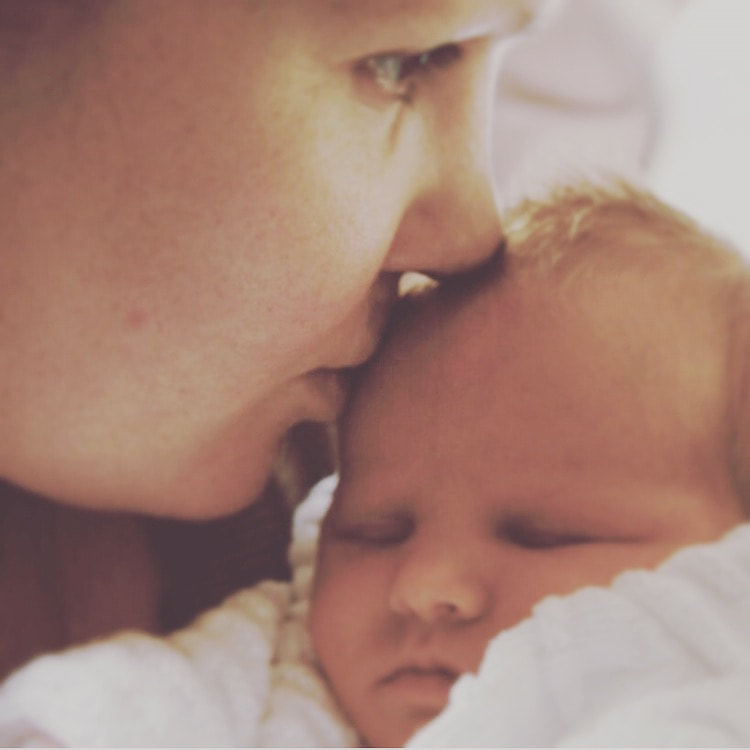|
When you first hold that little bundle of wrinkled skin and shrivelled gorgeousness, in your arms, your life changes in the blink of an eye. Your carefree days of only having to worry about yourself are gone, your time is no longer your own. You are a mum. You are responsible for another life and the kisses of love and adoration that you pepper incessantly over that tiny head, are full of promises and dreams.
Eighteen months after I gave birth to our daughter, I sat in my doctors waiting room, wishing someone would take me in their arms, swaddle me in a blanket and kiss my head with promises while my dreams whirled around me like some kind of tornado. I had been diagnosed with a hormonally receptive breast cancer for a second time. Not only did I have a husband this time around but I had a daughter, and the thought process that went with that minor detail made for a completely different thought process than it had before, seven years previously, in my twenties, when the most important thing to worry about had been whether to have white wine or red wine with dinner! The plates we spin as mums are many; kids, routine, family, lifestyle, work, relationships, but when we are given the almighty serving dish of a cancer diagnosis to spin alongside, it takes so much of our attention to keep it spinning, that we can often find ourselves watching on while the other plates wobble to a lazy end and then crash to the ground. A mothers love is a powerful thing but when I saw her toddling towards me on my return from that awful appointment, I felt totally helpless. What did this mean for her? How would we explain this to her? Who would look after her while I went to all my appointments? How much of her life would I be around for now? How was I going to cope with her energy? Does this mean she might be at risk? As we processed everything, I put her to the top of my list. I wanted to protect her and I didn’t want her to notice anything different, but as details began to emerge of the treatment plan, I realised that her routine would be affected and we needed to manage that. Communication was key, but how do you tell a nearly two year old? How do you tell any child you, or a member of your family, have Cancer? In this case, we kept it simple and related it to the global pink phenomenon that was then Peppa Pig. In all his glory Doctor Brown Bear stepped up to the mark and we told her that Mummy had an ‘ouch’ and would have to have daily visits with Doctor Brown Bear to make it better (though she looked understandably put out as to why she wasn’t invited too!) But when, another eighteen months later, I had a third diagnosis, words failed me, never mind finding more to explain to a three year old. A child’s world is only as big as they are, their scale of reference is relative to their age, so the complexities of explaining to them something that is so often associated with death, becomes one huge scary issue! My daughter was very young on both occasions, so we could just about manage the language and wave of questions that were fired at us like bullets, as we muddled through treatment and surgeries, but I was aware that she became clingy, a bit tearful and though generally happy and her normal outgoing self around others, the mothers guilt feasted and leapt upon these minor fluctuations, and self doubt and vulnerability caused my confidence as a mother to crash. The hardest part for me was the huge black cloud that is the ongoing state of my fertility. A four year old’s radar for different family structures asserts itself considerably and when the question i feared the most was suddenly vocalised, it felt like a bomb exploding. The pain and the gut wrenching twist of my stomach, totally floored me, ‘Mummy, when will I have a baby sister or brother?’ Trying to keep language simple and not dissolve into a puddle is hard. We can’t predict their questions, we can’t guess what they will say next. So how do we manage issues such as the change in our appearance and hair loss, with older children? How do we tackle the sometimes debilitating fatigue and side effects of radiotherapy and chemotherapy? Or, as in my case, how do we start a dialogue with children post cancer, and discuss the far reaching side effects on ourselves and our families? After my own experiences and talking to so many other patients and survivors who are also, first and foremost, Mums, I realised that the support for us, as a group, is not as accessible as it should be. When the darker and more intense issues surface and we are still spinning all those plates, who do we go to? We push the panic deeper down inside us. Oh for that darned instruction manual! Our children are individuals too. They may open up and confide in us or another member of the family, but they may also turn inwards and become guarded and defensive. If we focus on Cancer as a thing are we overwhelming them with issues of mortality? If we don’t, how can we control what their friends and outside influences tell them? Our mummy minds are a hot house of contradictions and once again we feel helpless to the things we can not control! The unknown is a scary place and as mothers, we will always claim that responsibility to protect them from anything that may jeopardise their innocence. Parenting Support and Samspaces recognise all of these concerns and complexities and are collaborating to offer a series of workshops to support and nurture these feelings and concerns. With tools, tips and models that have worked effectively in other tough parenting areas (divorce, separation and siblings with special needs) our aim is to provide a safe and honest space for mums affected by cancer, directly or indirectly (it could be another close member of the family,male or female) to discuss what it is we need to feel calmer and more productive, what we can do to support ourselves and our children in a more positive way as well as discussing how we can move forward while creating a new family normal. Perhaps, together, we can implement small changes and take slow, baby steps; like taking ten minutes each day to allow ourselves to separate from that intensity and play, interact and engage with our children, creating a more positive environment for them, while offering a safe space where things are familiar again. In light of everything, I am so proud of the girl my daughter is becoming. She may push us to the edge with her insanely early wake up calls, but she is her own amazing person. Recently, when I tried to explain to her, what Cancer was, now she is older, she told me, quite adamantly, that Alzheimer’s is way worse than Cancer because Great Granny has that! I realised that in her world, Cancer can’t be that bad because I look fine, however Great Granny is slightly less fine! Kids are clever, they pick up on everything but whether two or eight, I am proud she has seen that a mother can be strong, brave and honest and if she grows up knowing nothing else, I want her to know, ‘A mothers love for her child is like nothing else in the world. It knows no law, no pity, it dares all things and crushes down remorselessly all that stands in its path’ – Agatha Christie. And that, my darling, includes Cancer! x
0 Comments
Leave a Reply. |
AuthorOver the course of all my cancer experiences I kept a diary. These are the blogs I have written from the thoughts and feelings I recorded there. xx Archives
January 2021
Categories
All
|




 RSS Feed
RSS Feed
